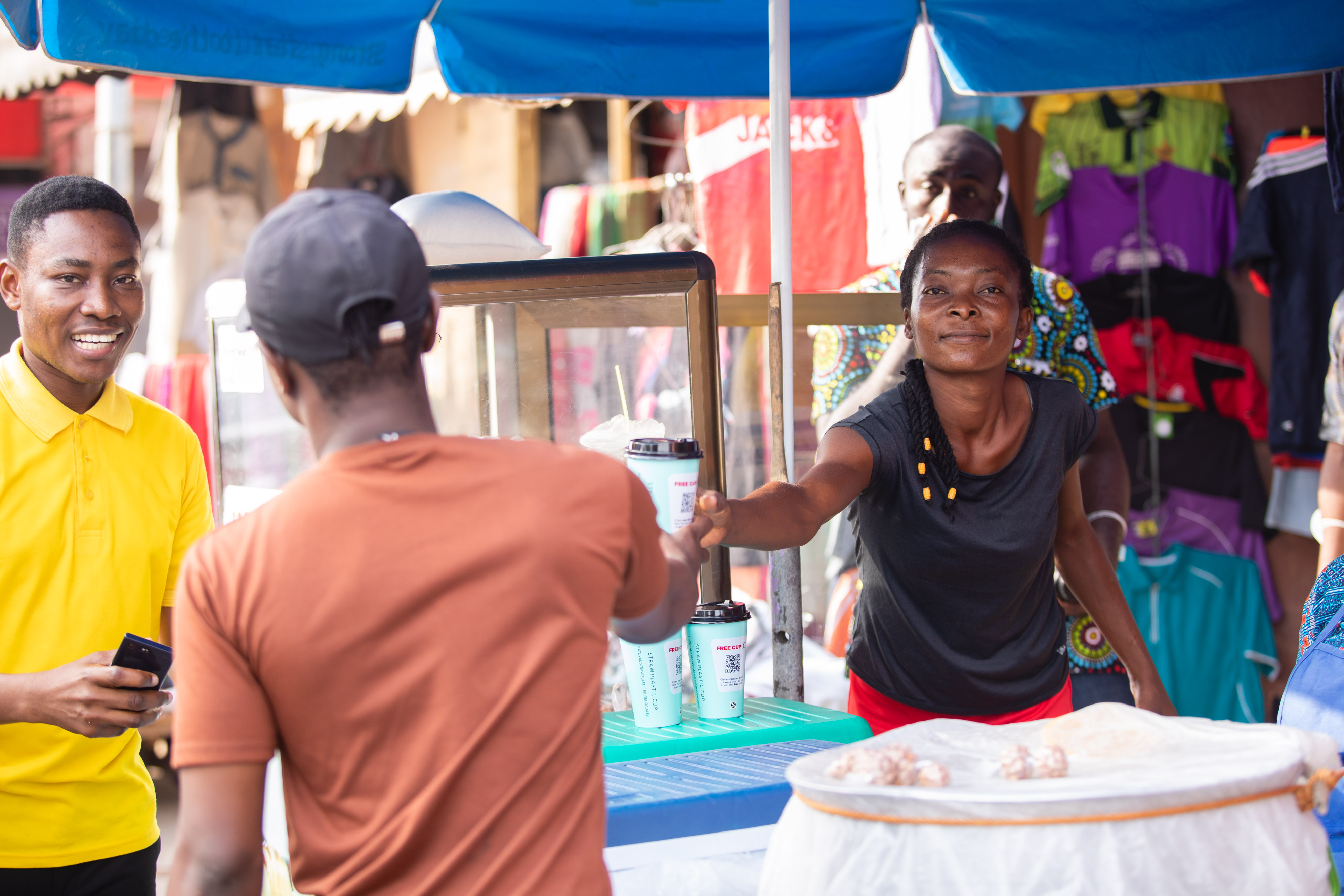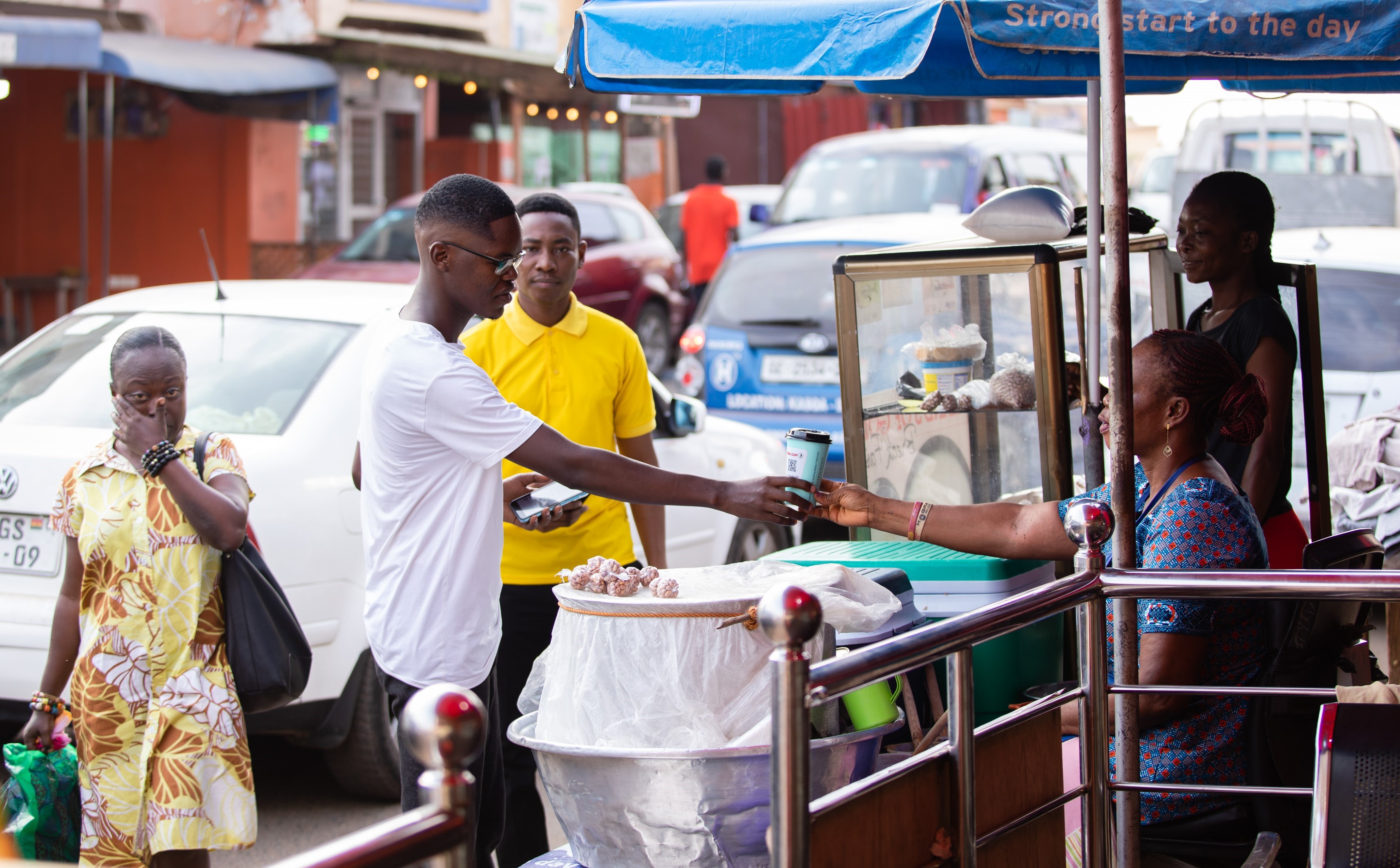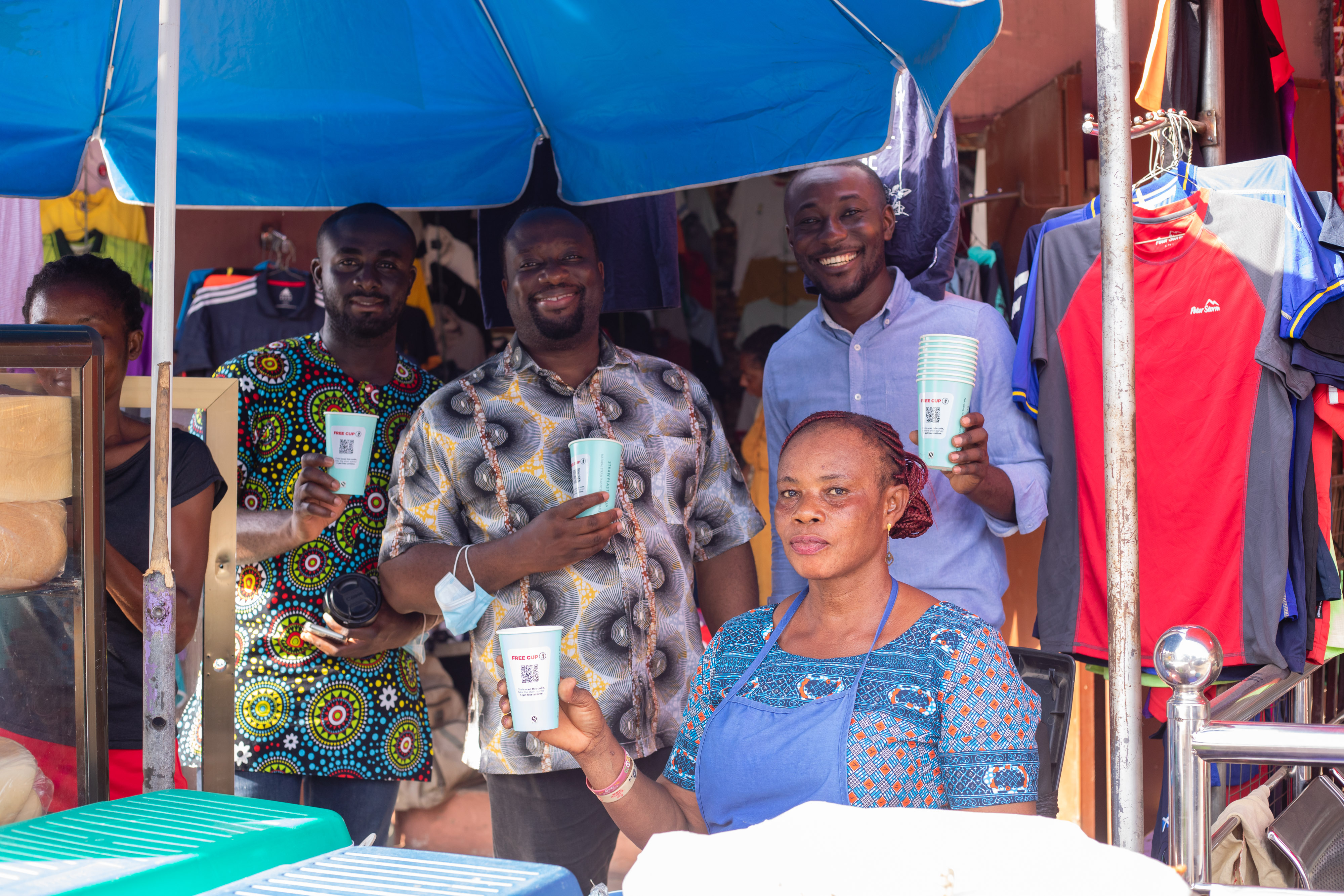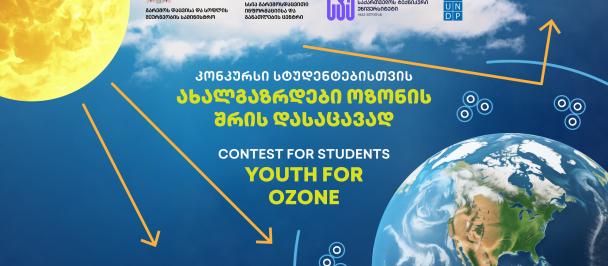UNDP experiment shows promise for environmentally friendly packaging in Ghana
November 27, 2023

A koko (porridge) vendor serving customers with the paper cup
To contribute to efforts to combat plastic pollution, the United Nations Development Programme (UNDP) has taken steps to conduct an experiment on upstream approaches to reducing plastic pollution, with a focus on alternatives to plastic packaging. Results from the experiment suggest that Ghanaians are willing to use alternatives to help beat plastic pollution.
The experiment involved an online poll conducted by the UNDP Accelerator Lab and TroTro Diaries (a large Facebook community). The poll with 650 respondents reveals the public’s increasing preference for environmentally friendly packaging, and concerns about excessive use of plastic bags (multiple bagging). However, there are also concerns about the affordability of alternatives to plastic packaging.
To understand the potential for alternative packaging, the study involved interviews with businesses that have introduced different approaches to reducing plastic pollution including more sustainable packaging. The experiment was followed by a field study at commuter stations in Ghana’s capital city Accra, where UNDP provided selected food vendors with free branded paper cups, which were offered to customers instead of the usual multiple single-use plastics bags.
“I get more than 200 customers every day. I am able to know this by the number of rubber bags I use in a day. It will be good to encourage people to use the paper cups”, Akua, a porridge vendor explained.
The findings showed that, more than half of the customers said they would pay an extra one Ghana Cedi, fifty pesewas (0.12 US cents) for the paper cup to avoid the use of the plastic bag. A minority want it for free, and about two out of ten consumers are even willing to pay more for the paper cups.
“I take home three rubbers anytime I buy 'koko' (corn porridge). Putting hot substances in rubber is not good for our health but when we use the paper cup, it is safe health wise and it is recyclable”, Simon Moray, a customer explained.
The findings of the experiment highlighted the need for more targeted and innovative awareness campaigns to sustain behavior change in communities. The results also show the investment potential for innovative packaging and business processes to tackle plastic pollution in Ghana.
With 175 nations agreeing at the fifth session of the United Nations Environment Assembly in 2022 to combat plastic pollution and create a binding international agreement to curb plastic pollution by 2024, it is critical that Ghana accelerates efforts to beat plastic pollution.
Learn more in the report here: https://bit.ly/3u0MP9K or at QR Code below:

Akua, a koko (porridge) seller serving customers with the paper cup

Aku (the porridge seller) with the UNDP Ghana project team
###
For media enquiries, please contact:
Ms. Praise Nutakor - Head of Communications and Partnerships, UNDP Ghana
Email: praise.nutakor@undp.org ; Tel: +233-501323566

 Locations
Locations



